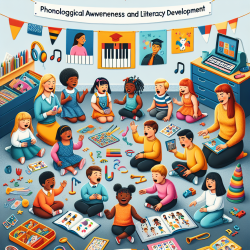The development of cognitive control during adolescence is a critical aspect of a young person's growth, influencing decision-making and behavior regulation. Recent research has highlighted the significant roles that family socioeconomic status (SES) and parenting behaviors play in this developmental trajectory. For practitioners working with adolescents, understanding these dynamics can enhance their ability to support positive cognitive and behavioral outcomes.
The Influence of Family Socioeconomic Status
Family SES has long been associated with various developmental outcomes in children and adolescents. The recent study by Li et al. (2022) provides a comprehensive look at how SES interacts with parenting behaviors to influence cognitive control development. The study found that lower family SES is often linked to poorer cognitive performance, especially when coupled with low parental warmth. Conversely, higher SES combined with effective parental monitoring can lead to significant improvements in cognitive control.
Parenting Behaviors: Warmth and Monitoring
Two key dimensions of parenting—warmth and monitoring—are crucial in shaping adolescent cognitive control. Parental warmth, characterized by supportive responsiveness, helps adolescents internalize self-regulation skills. Monitoring involves parents' knowledge about their child's whereabouts and activities, providing a consistent framework for behavior regulation.
The study revealed that higher parental warmth can buffer the negative effects of low SES on cognitive control. Meanwhile, effective monitoring was shown to enhance the benefits of high SES, leading to better developmental outcomes.
Implications for Practitioners
- Focus on Enhancing Parental Engagement: Encourage parents to increase warmth and monitoring behaviors. Workshops or counseling sessions could be effective in helping parents understand the impact of their involvement.
- Address Socioeconomic Challenges: Advocate for policies that provide resources to low-SES families, enabling them to create more supportive environments for their children.
- Promote Resilience Through Education: Implement programs that teach adolescents self-regulation skills, particularly in schools serving low-SES communities.
Encouraging Further Research
This study opens up several avenues for further research. Future studies could explore how other environmental factors such as peer influence or school environment interact with SES and parenting to affect cognitive control development. Additionally, longitudinal studies could provide deeper insights into how these dynamics evolve over time.
For practitioners looking to delve deeper into this topic, accessing the full research paper can provide a more detailed understanding of the findings and methodologies used: Development of cognitive control during adolescence: The integrative effects of family socioeconomic status and parenting behaviors.










